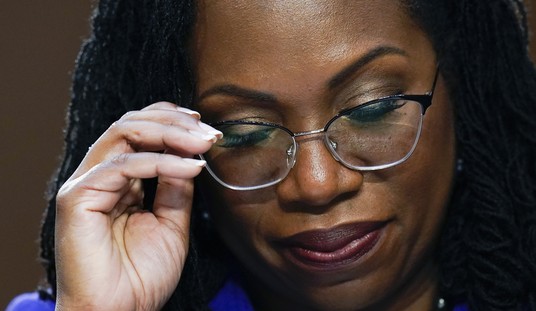The war between Israel and Hamas has been unusually hard on civilians. The reason is simple; there are few places on planet Earth where so many human beings are crowded so closely together than the 2 million people living on the Gaza Strip. Nearly 21,000 people per square mile are squeezed into 88 square miles of territory.
The disruption the war has caused is nearly incomprehensible. Roughly 85% of the population has been displaced. Whether they can ever return to what's left of their homes is unknown. As you can imagine, sanitation is horrible, clean water is hard to find, and disease is already spreading rapidly. The UN World Food Program claims that half the people in Gaza are starving.
Health care for Palestinians is "on its knees," World Health Organization Director-General Tedros Adhanom Ghebreyesus warned Sunday. Israel is bombing around medical facilities because Hamas has taken refuge there.
U.N. Secretary-General António Guterres pointed out at a meeting in Doha, Qatar, “There is no effective protection of civilians in Gaza,” he said. “I expect public order to completely break down soon, and an even worse situation could unfold.”
No food, no clean water, no health care, no protection — where will the Gazans go?
The only place available for Palestinian refugees to flee is Egypt. And Egypt is not only unprepared to welcome hundreds of thousands of refugees, but it will also actively seek to block them from entering.
Egyptian Foreign Minister Sameh Shoukry has called the prospect "totally unacceptable."
But to many in the Arab world, the idea of a Palestinian exodus pouring into Sinai is a nonstarter. For weeks, Arab governments have rejected the prospect of taking in refugees from Gaza — partially because of economic and security considerations, but primarily out of fear that Palestinians who flee Gaza will not be allowed to return. Given the 75-year history of the Israeli-Palestinian conflict, their concerns are not without credence. Numerous Gazans speaking to journalists say they would rather die in their own land than leave for a life in indefinite exile, a fate that has befallen generations of Palestinians elsewhere.
Arabs, ever mistrustful of the Israelis, believe that Jerusalem has engineered an outcome that would see the Palestinians leave the country. Perhaps it goes too far to claim that Israel has created the conditions of a Palestinian exit deliberately. But I doubt whether Israel's Prime Minister Benjamin Netanyahu will shed any tears over the coming exodus of Palestinians to Egypt.
Egypt doesn't want the refugees for a variety of reasons. Cairo already hosts around 9 million refugees and doesn't want the headache of taking on the Palestinians and all their baggage. Besides, Egypt and the entire Arab world want the Palestinians in Gaza where they are used as political pawns to bash Israel and connect to the Arab street.
But for Egypt, the Palestinians are a huge security threat. Cairo is already fighting a war against radical Islamists in the Sinai.
"What you get in Sinai is a splinter of ISIS," Uzi Rabi, director of the Moshe Dayan Center for Middle Eastern and African Studies says, referring to the Islamic State militant group. He describes the terrorists based in Sinai as "a cocktail of Islamic radicalism, terrorism ... arms smuggling and all that stuff."
There's also the question of where the remaining Hamas fighters who survive the war go. A nightmare for Egypt would be Hamas launching attacks against Israel from Sinai, inviting retaliation on Egyptian soil. And Hamas isn't the only extremists in Gaza.
Timothy Kaldas, deputy director of the Tahrir Institute for Middle East Policy, thinks there are other groups that Egypt is more concerned with.
"There are other militant groups in Gaza," such as Palestinian Islamic Jihad, he says. Even if one militant group disappears, "it doesn't mean militancy is going to go away," Kaldas says. He doubts Israel can eradicate Hamas, but even if that happened, "there's certainly a risk that other groups will sprout in its place."
There are a variety of reasons why Egypt and other Arab states don't want anything to do with Palestinian refugees. But it appears that Egypt is going to be stuck with perhaps hundreds of thousands of Palestinians who have revenge in their hearts and murder on their minds.
The probability that the refugees will destabilize the Egyptian regime of President Abdel Fattah el-Sisi is high.










